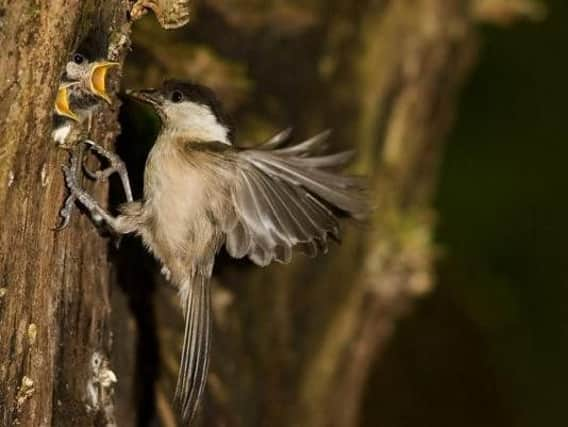Twitchers' delight as willow tits are spotted


Campaigners from Lancashire Wildlife Trust, based at Wigan Flashes, have led the drive to improve habitats for the willow tit, regarded as Britain’s most endangered small bird.
And now they have been rewarded with sightings of willow tits, whose populations have declined by up to 90 per cent over the past 15 years, in the Preston and Chorley areas.
Advertisement
Hide AdAdvertisement
Hide AdChris Taylor, a project officer for the wildlife trust, said: “We know the Wigan Flashes area is a stronghold for willow tits.
“But Wigan to Preston would represent a journey of epic proportions to a willow tit. They stick to their territory, travelling just a couple of miles in their lifetime.”
But the flight of the willow tit has not been without its mysteries - six years ago there were evidence the bird had found its way to the likes of Yarrow Country Park, Cuerden Valley Park and a number of other sites.
Just as quickly though, despite efforts to improve their habitats at sites like Brockholes at Samlesbury, they vanished, according to observers.
Advertisement
Hide AdAdvertisement
Hide AdChris added: “Last April, a member of Fylde Bird Club, who lives near Savick in Preston, had a willow tit visit his garden. Over the next few days the bird was seen several times in the nearby Savick Park.
“This area is near the old Cottam brickworks, before the site was cleared for development several years ago it was a known breeding site, but this latest sighting suggests the birds found a new spot in the area.”
“The second twist came in late January when a willow tit was seen again at Brockholes after a nearly four-year absence.
“One willow tit appearing on a site could have been freak occurrence, but two in three years suggests again they are breeding somewhere nearby and we had missed them.”
Advertisement
Hide AdAdvertisement
Hide AdChris has worked with Mark Champion, projects manager at Wigan Flashes, who suggested there must be willow tit populations between Wigan and Preston, after analysing historic records and consulting with local bird-watchers.
Trust campaigners are convinced there may be two missing Preston breeding sites as Savick and Brockholes are too far apart to be connected.
The willow tit is black, pale brown and white tit with a pale panel on the wings and a dull black cap.
It has a distinctive nasal zee, zee, zee call which is often the most reliable way to identify the bird.